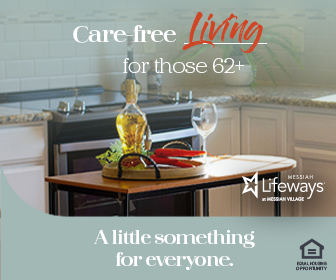Several weeks ago I hosted one of our regular Coaching workshops entitled “How to Have the Talk.” It was designed for those with an ailing or aging loved one in need of care, but may be struggling because he or she is resistant to change and accepting help. This issue is pretty common and can be a challenge for family members and caregivers to broach. The goal of the workshop is to help them overcome those challenges, think more proactively, offer ideas and resources to help them through the process and to frame the conversation itself. I want to share some of the tips and insight from that workshop.
As loved ones age and possibly become more frail and dependent, there’s often a transference of roles that we might come to expect. The adult child takes on the role of parent or caretaker, and their aging parent becomes the dependent. This change can also contribute to the anxiety and avoidance of talking to a parent about their loss of independence, overall decline, and ultimately their need for help. This undoubtedly is a trying and emotional time for everyone involved.
This shift can start very slowly such as driving mom to a doctor’s appointment or helping dad with housekeeping or meals. And in most often this extra help and attention is welcomed and appreciated. However, for some, this change is more difficult, especially as setbacks escalate due to declining health, early dementia or even the death of a spouse who served as the primary caregiver. At this juncture things may start to deteriorate quickly. So not having an open and honest conversation about what their needs, wants and desires are can produce some bad outcomes. The following offers some insight and advice for this difficult dialogue.
When should you initiate the talk?
Though everyone’s situation is different, there are some red flags to key in on, especially if there is one or more of these issues with others on the horizon.
- isolation/depression
- decrease in appetite
- poor hygiene
- increased falls/bruising
- significant cognitive decline
- increased medical needs/hospitalizations
- increased medication errors
- inability to manage household/finances
- you experience caregiver burnout
Talking tips
Most would assume you’d actually include your loved one in the dialogue; however, quite often they are being talked about rather than being talked to. So, step one, include them in this process. Once you initiate the conversation, it’s important for you and them to share concerns, hopes, wishes and desires. This discussion also deserves to be scheduled in a comfortable distraction-free environment. Both parties’ full attention, privacy and openness is essential during the talk.
The most vital aspect of this conversation is to have it sooner rather than later. There is no room for procrastination when it comes to the health and safety of a loved one. It is also helpful to get support from their family doctor, as well as other family members. It’s important to have a united front where everyone is on the same page about mom’s or dad’s plan of care. Though easier said than done, you should also be persistent, a good listener and not argue. Lastly, stay positive, reframe the conversation and be specific. Some examples include the following:
- Instead of “Dad, you are horrible driver!” try “Dad, I am concerned about your safety while driving, especially at night or when it rains.”
- Instead of “Mom, you’re not eating enough!” try “Mom, I’m concerned about your 15 lb weight loss in the last four months.”
- Instead of “You can’t take care of yourself – it’s time to move to a facility!” try “Have you ever considered moving to a retirement community? Let’s go visit or have lunch there.”
Many of these tips and approaches can be applied to getting your loved one care and services into the home, as well as talking to them about moving to a retirement community or care facility. Being proactive and preaching preparedness is much easier when they are in better health, in a better state of mind and when they can have more decision making power and control over their future.
If you would like to learn more about this and other Coaching workshops or would like more tips, please contact the Messiah Lifeways Coach at 717.591.7225 or coach@MessiahLifeways.org





